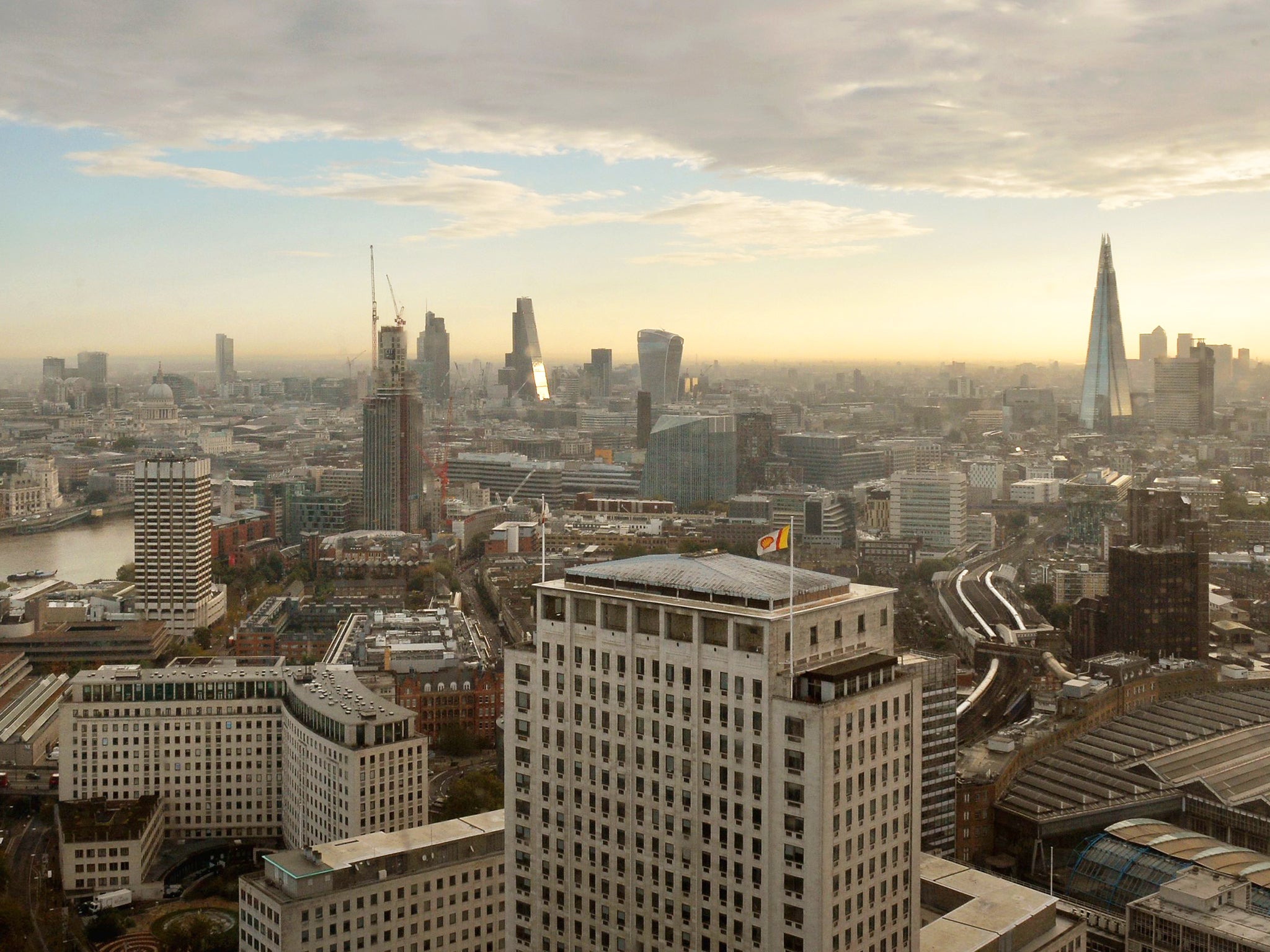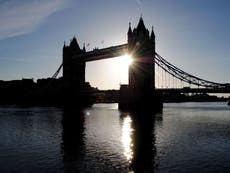London is expensive, crowded and frenetic — and how we love to hate it
It’s the dark star of the economy, inexorably sucking in people and energy

London. Nobody likes it. Not the people who live outside it and cannot fathom why anyone would want to live in such a noisy, dirty, rude city where the £5 pint is rife. Not the people who have left it after years of living hard and fast in its smoggy frenzy but now value nice schools, gardens and kindness too much ever to return. And not the people who live in it. Definitely not them.
No one on earth whinges like a Londoner whinges about London. Frequent topics for a gripe include, in no particular order: house prices, Tube strikes, gentrification, the schools, no-reservation restaurants, the traffic, house prices, Oxford Street on a Saturday, the lack of proper pubs, tourists, the sirens, not knowing your neighbours, noisy neighbours, the Shard, the phrase “planned closure due to engineering work”, crumbling West End theatres, house prices, muggings, no green space, everything you ever want to do being sold out, everywhere you ever want to go being booked up, people walking slowly, too many cyclists, not enough Boris bikes, the price of a pint, people getting on the Tube before you’ve got off it, everything, in fact, about the Tube, house prices.
It is not the done thing to like London. You live it, survive it, perhaps thrive on it, but like it? There’s no time for that – move out of my way, stand on the right, we’ve all got places to be, queues to join, houses to be gazumped on.
There is another faction of London-haters, too. The anti-metropolitans are not a new tribe by any means, but they came to the fore during the Scottish independence debates, which crystallised a widespread unease about Londoncentricity – not just among the Scottish. Alex Salmond adopted London School of Economics professor Tony Travers’s description of the capital in one of his more rousing speeches – “the dark star of the economy, inexorably sucking in resources, people and energy”.
A few months earlier, the Liberal Democrat Business Secretary, Vince Cable, deemed London to be “a kind of giant suction machine, draining the life out of the rest of the country”. This week, Tim Farron, the president of the Liberal Democrats, picked up the theme in his speech at the party conference. “It is ludicrous that our largest city is more than seven times bigger that our second largest city. So many of the social problems in London, and outside London, rest on the fact that London matters far too much for its own good and for the country’s good. We need to liberate the potential of the rest of Britain.”
It sounds persuasive but there are two things here that should not necessarily be yoked together. It is true that, since 2007, London’s economy has grown approximately twice as much as the rest of the country’s. Take house prices: in the past year, they rose by 18.2 per cent in London as compared with 5.9 per cent in the North. There is evidence, too, for a graduate brain drain, or “giant suction machine”. A study by Centre for Cities this year found that one in three 22- to 30-year-olds who changes city heads for London.
Farron’s assertion that “London matters far too much for its own good” goes deeper than statistics, though. It seems to attack the capital’s arrogance – its status as an inviolable seat of power, home of culture, media hub. Then again, at seven times the size of the second city, it would struggle not to be all of these things. For better or worse, London is the grimy, gritty, grumpy face that we show to the world. It is also an economic powerhouse which contributes more than it receives to the Treasury, creates jobs inside and outside the capital and attracts vast overseas investment.
It is a false dichotomy that London’s prosperity makes the regions poorer. Liberating the potential of everywhere else is a must, but to do London down will only hamper that progress. Besides, there are enough people doing it down already. There is much to gripe about but there is much to celebrate, too. Even for a proud Northerner, adoptive Londoner like me.
In no particular order – the 24/7 buzz, the Tube when it works, global cuisine, world-class culture, summer picnics in the parks, the Houses of Parliament, the markets, the view when you cross Waterloo Bridge in a black cab at night, the black cabs, the matches at Wembley and the gigs at Brixton, the shops, the Shard, the street style, the way that everyone is always looking for the next big thing, the thrilling pace and nerve-jangling sense that things are happening. London matters, and we should be proud that it does.


Join our commenting forum
Join thought-provoking conversations, follow other Independent readers and see their replies